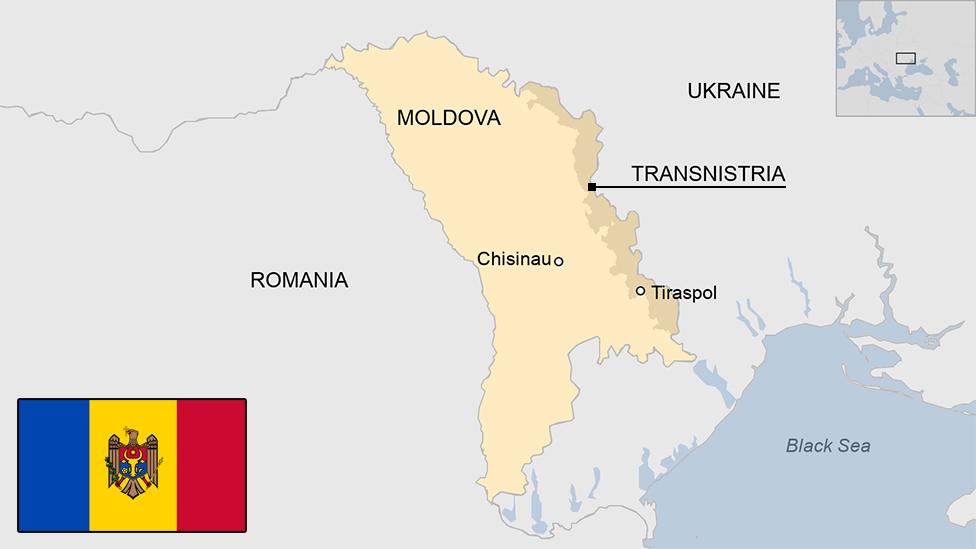Moldova PM Pavel Filip rejects calls to step down
- Published
Pavel Filip is taking charge of Moldova at a time of deep economic crisis
Moldova's new prime minister, Pavel Filip, has dismissed calls from anti-corruption protesters for his government to step down.
Speaking to the BBC, Mr Filip acknowledged that the political class had a last chance to restore trust.
But he warned he would crack down on any violent protests.
More than 20,000 people demonstrated in the capital, Chisinau on Sunday. They object to Mr Filip's links to powerful oligarchs.
Moldova has been wracked by political crisis after $1bn (£700m) - equivalent to an eighth of the ex-Soviet republic's entire GDP - was found to be missing from Moldovan banks last January.
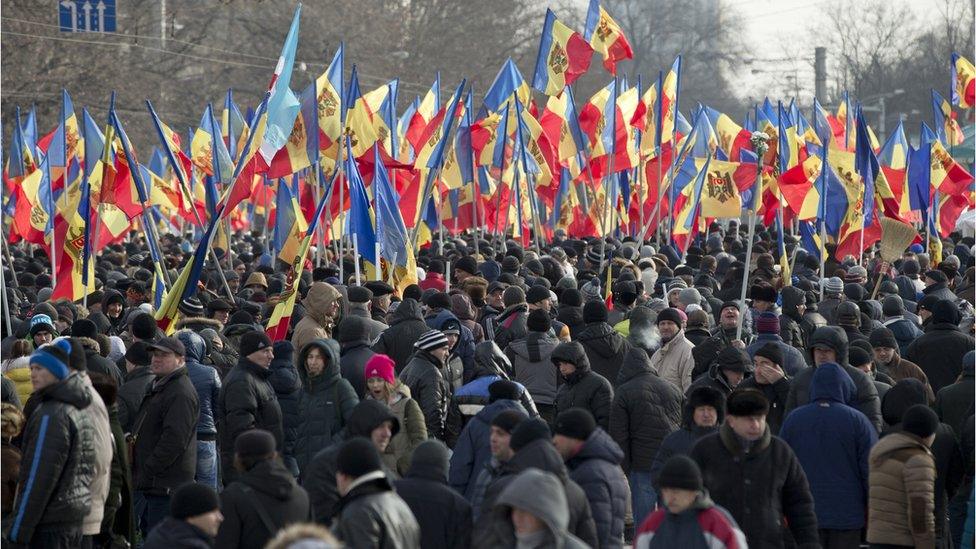
Both pro-Western and pro-Russian protesters are unhappy with Mr Filip
But in his first interview with international media, Mr Filip told the BBC's David Stern that his stepping down could harm the country.
"We could find ourselves in a deep economic and social crisis. It's possible that Moldova wouldn't be able to pay salaries and pensions for four months," he said.
Mr Filip was elected by parliament under controversial circumstances last week.
His election came after former prime minister Vlad Filat was arrested over the bank fraud and his successor Valeriu Strelet was dismissed in a no-confidence vote in October.
However both pro-Western and pro-Russian groups accuse him of using a pro-EU stance to hide corruption.
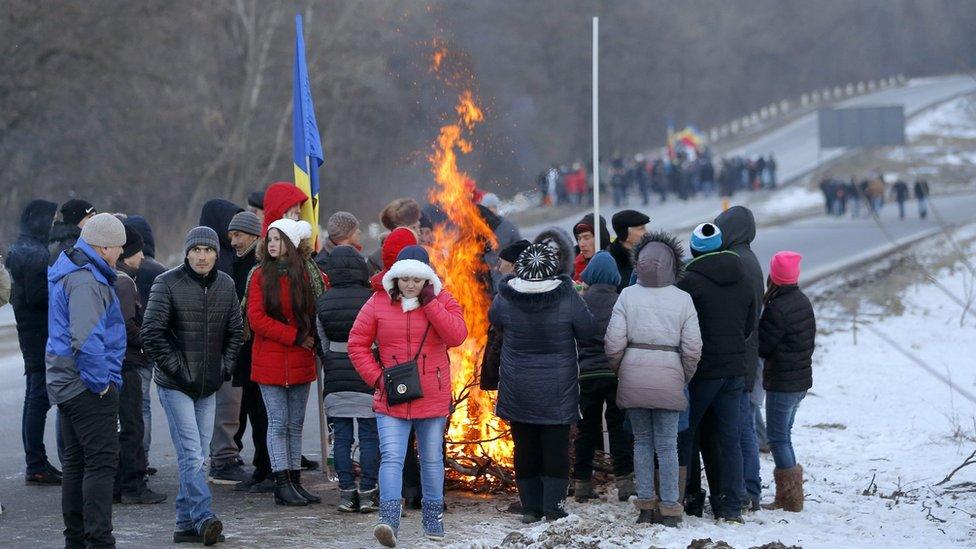
Prime Minister Filip has vowed to stop demonstrators blocking roads
Mr Filip admitted that Moldovans had little confidence in their leaders and appealed for more time.
"We understand that people won't believe any more populism. And I ask the protesters and our international partners: Judge the tree not by the roots, but by its fruits," he said.
However, he insisted Moldova would not soften the reform programme set out under the accession agreement it signed with the EU in 2014.
And he vowed that there would be no tolerance for violent protests after some demonstrators blocked roads into the capital on Sunday.
"Any action from the protesters that could be considered a violation of the law will be punished," he said.
Moldova is Europe's poorest country and the bank fraud caused a rapid fall in the value of its currency, the leu, hitting living standards.

Why is Moldova Europe's poorest country?
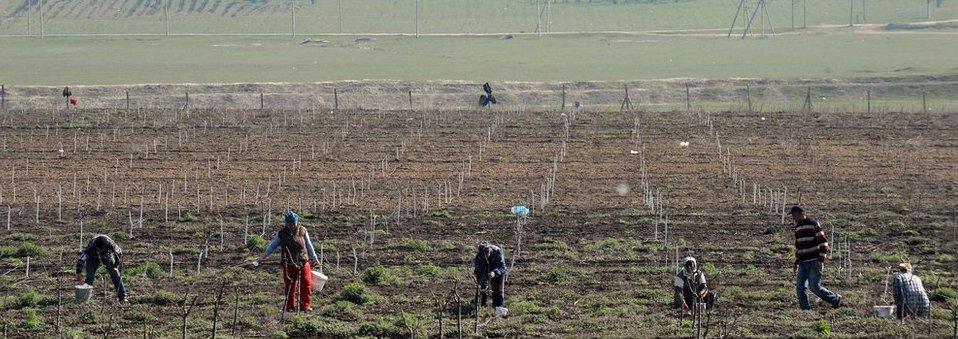
Moldova's economy is based chiefly on agriculture and the country has struggled to develop a more varied economic base ever since the industrialised Dniester region unilaterally declared independence in 1990.
The region to the east of the river Dniester - also known as Trans-Dniester - is inhabited mainly by Russian-speaking Slavs who were alarmed at the prospect of Moldova forging closer ties with Romania. The unresolved conflict over the region also damaged Moldova's economic ties with other former Soviet republics.
Didn't Moldova export lots of wine to Russia?
Wine used to be one of the country's main exports and was for a long time its main source of hard currency.
But in 2005 Russia banned the import of Moldovan wines, saying that this was because of their poor quality. However, many Moldovans believe that the real reason was to punish the country for straying from the Kremlin's orbit.
What is the mainstay of the Moldovan economy now?
The Moldovan economy still exports very little and is heavily dependent on remittances from Moldovans working abroad, especially from Russia, and so has been badly affected by Russia's recent economic difficulties.
Analysis provided by BBC Monitoring. You can follow BBC Monitoring on Twitter, external and Facebook, external.
- Published29 October 2015
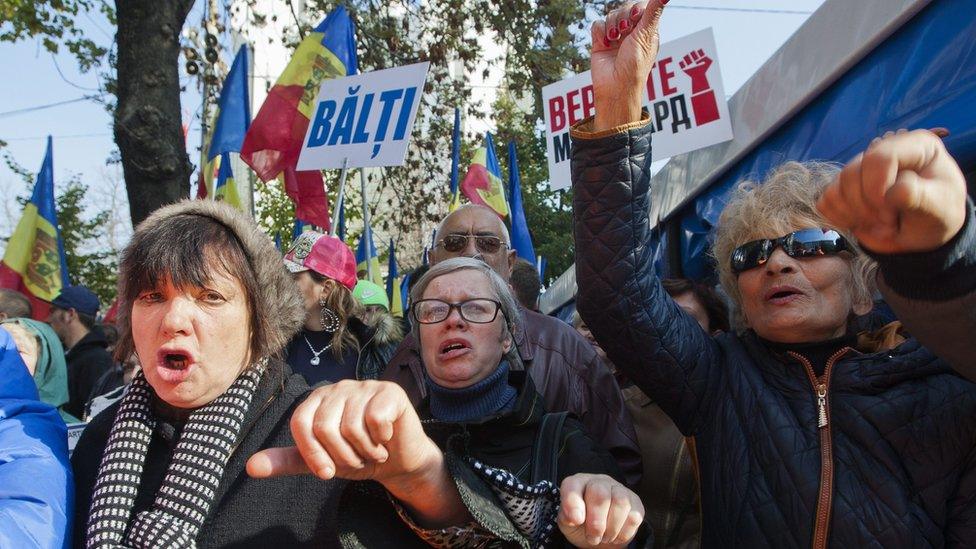
- Published4 November 2024
